Description
What is Orlistat?
Orlistat is a medication offered by SupplementsXP to help people lose weight by reducing the absorption of dietary fat in the body.
Orlistat works by inhibiting the action of enzymes called lipases in the digestive system. Lipases are responsible for breaking down dietary fats into smaller molecules that can be absorbed by the body. By blocking these enzymes, Orlistat prevents the digestion and absorption of a portion of the fat consumed in the diet. This undigested fat is then eliminated from the body in the stool.
Orlistat is typically used as part of a comprehensive weight loss program that includes a reduced-calorie diet and increased physical activity. It is intended for individuals who are overweight or obese and have not been successful in losing weight through diet and exercise alone.
Orlistat Weight Loss: Does it Work?
Yes, SupplementsXP Orlistat is very effective in helping people lose weight when used as part of a comprehensive weight loss program. Its mechanism of action, which involves reducing the absorption of dietary fat in the body, can lead to a decrease in calorie intake and promote weight loss.
How Does Orlistat Work?
SupplementsXP Orlistat works by inhibiting the action of enzymes called lipases in the digestive system. Lipases are responsible for breaking down dietary fats into smaller molecules that can be absorbed by the body. Orlistat is a medication used to help with weight loss by interfering with this process.
Here’s how Orlistat works:
- Inhibition of Lipases: When you take Orlistat, it enters your digestive system and blocks the activity of lipases, which are primarily found in the stomach and pancreas. These enzymes play a crucial role in breaking down dietary fats into smaller molecules called fatty acids and glycerol.
- Reduced Fat Absorption: Because Orlistat inhibits lipases, it prevents the digestion of a portion of the dietary fat you consume. As a result, the undigested fat cannot be absorbed by your body.
- Fat Elimination: Instead of being absorbed, the undigested fat passes through your digestive system and is eliminated from the body in the form of oily stools. Some individuals may experience oily spotting, increased bowel movements, and flatulence as a result of the unabsorbed fat passing through the gastrointestinal tract.
By reducing the absorption of dietary fat, Orlistat decreases the number of calories your body obtains from fat. This calorie reduction can help with weight loss when combined with a reduced-calorie diet and increased physical activity.
How Much Weight Can I Lose in a Week with Orlistat?
The amount of weight you can lose in a week with Orlistat can vary widely depending on several factors, including your starting weight, diet, exercise habits, and individual response to the medication. However, it’s important to note that weight loss should be gradual and sustainable for long-term success, and rapid weight loss can be associated with health risks and is often not recommended.
On average, with the use of Orlistat as part of a comprehensive weight loss program that includes a reduced-calorie diet and increased physical activity, individuals may aim to lose about 1 to 2 pounds (0.45 to 0.9 kilograms) per week. This is considered a safe and sustainable rate of weight loss.
How Long Should I take Orlistat For?
Orlistat is often prescribed for a limited duration, typically around 3 to 6 months, to help individuals lose weight and establish healthier eating and lifestyle habits.
The duration of Orlistat use may also depend on how much weight you need to lose to reach your target or healthy weight. Some individuals may achieve their desired weight loss within a few months and may not need to continue using the medication.
Orlistat should be discontinued if it is not effective in helping you lose weight or if you experience severe side effects that outweigh the potential benefits. It should not be used indefinitely.

How and When Should I take Orlistat?
The typical recommended dose of SupplementsXP Orlistat is 90 mg taken orally three times a day with each main meal that contains fat. This amounts to a total daily dose of 270 mg of Orlistat.
Take orlistat with your meal or up to one hour after eating. It should be taken during or within an hour of consuming a meal that contains fat. If you skip a meal or the meal is low in fat, you do not need to take the medication.
When should I Not take Orlistat?
There are certain situations and medical conditions in which you should not take Orlistat or should use it with caution. It’s essential to consult with a healthcare provider before starting Orlistat to ensure it is safe and appropriate for your individual circumstances. Here are some situations in which Orlistat should be avoided or used with caution:
- Allergy or Hypersensitivity: If you have a known allergy or hypersensitivity to Orlistat or any of its ingredients, you should not take this medication.
- Chronic Malabsorption Syndrome: Orlistat may not be suitable for individuals with chronic malabsorption syndrome, a condition in which the body has difficulty absorbing nutrients from the digestive tract. This includes conditions like celiac disease and certain types of gastrointestinal disorders.
- Gallbladder Problems: If you have gallbladder problems or have had your gallbladder removed, you should use Orlistat with caution, as it can increase the risk of gallstone formation.
- Pregnancy and Breastfeeding: Orlistat is typically not recommended for use during pregnancy or breastfeeding, as its safety in these situations has not been fully established. Pregnant or breastfeeding women should consult with their healthcare provider for alternative weight loss strategies.
- Organ Transplantation: If you have undergone organ transplantation and are taking immunosuppressant medications, consult with your transplant team before using Orlistat, as it may affect the absorption of immunosuppressants.
- Medication Interactions: Orlistat may interact with certain medications, including anticoagulants (blood thinners) and medications used to manage diabetes. If you are taking any other medications, inform your healthcare provider so they can assess potential interactions.
- Eating Disorders: Individuals with a history of eating disorders, such as anorexia or bulimia, should use Orlistat with caution and under close medical supervision, as it may exacerbate unhealthy eating behaviors.
- Kidney Stones: If you have a history of kidney stones, the use of Orlistat may increase the risk of forming new kidney stones. Discuss this with your healthcare provider.
- Liver Disease: Individuals with liver disease or impaired liver function should use Orlistat with caution, as the medication is primarily metabolized in the liver.
- Children: Orlistat is generally not recommended for use in children under the age of 12. Its safety and effectiveness in pediatric populations may vary, so it should be used under the guidance of a healthcare provider.
Does Orlistat Have Side Effects?
Yes, Orlistat can have side effects, and they are primarily related to its mechanism of action, which involves reducing the absorption of dietary fat in the digestive system. The most common side effects of Orlistat include gastrointestinal symptoms, but other side effects are possible as well. Here are some of the common and less common side effects associated with Orlistat:
Common Side Effects:
- Oily Stools: One of the most common side effects of Orlistat is the presence of oily or fatty stools. This occurs because the medication prevents the absorption of dietary fat, leading to excess fat being excreted in the stool.
- Increased Bowel Movements: Individuals taking Orlistat may experience more frequent bowel movements or urgency to have a bowel movement.
- Flatulence (Gas): Increased gas production is a common side effect, often accompanied by a feeling of bloating or discomfort.
- Fecal Incontinence: Some people may experience episodes of fecal incontinence or an inability to control bowel movements, especially if they consume meals that are high in fat.
Less Common Side Effects:
- Abdominal Pain: Some individuals may experience abdominal discomfort or pain while taking Orlistat.
- Headache: Headaches have been reported as a less common side effect.
- Nausea and Vomiting: Although less common, some people may experience nausea and vomiting while using Orlistat.
- Rectal Pain or Discomfort: In rare cases, individuals may experience rectal pain or discomfort.
- Irregular Menstrual Periods: There have been reports of irregular menstrual periods in some women using Orlistat.
- Allergic Reactions: Allergic reactions to Orlistat are rare but can occur. Signs of an allergic reaction may include rash, itching, swelling, severe dizziness, or difficulty breathing.
- Liver Problems: In rare instances, liver problems have been reported in people taking Orlistat. Symptoms may include yellowing of the skin or eyes (jaundice), dark urine, or persistent nausea.
It’s important to note that not everyone will experience these side effects, and some individuals may have a higher tolerance for them than others. Most side effects of Orlistat are mild and temporary, and they often improve or resolve with continued use of the medication.
Does Orlistat Speed Up Metabolism?
Orlistat does not speed up metabolism. Its primary mechanism of action is to reduce the absorption of dietary fat in the digestive system by inhibiting the activity of lipase enzymes. This means that Orlistat does not directly affect metabolic processes like increasing the rate at which your body burns calories (metabolism).
Conclusion
In conclusion, Orlistat is a medication used to aid weight loss by reducing the absorption of dietary fat in the digestive system. Its effectiveness varies from person to person and is most successful when combined with a reduced-calorie diet and increased physical activity. Orlistat is typically prescribed for short-term use and should be used under the guidance of a healthcare provider. While it can help individuals lose weight, it does not directly speed up metabolism. Achieving and maintaining a healthy weight requires a holistic approach, including lasting dietary and lifestyle changes. Always consult with a healthcare provider for personalized guidance and to ensure the safe and appropriate use of Orlistat or any weight loss method.
Note: This content is for informational purposes only and does not constitute medical advice. Please consult with a healthcare professional before using any supplements. All products sold on SUPPLEMENTSXP are for research purposes only and not intended for human or animal consumption.

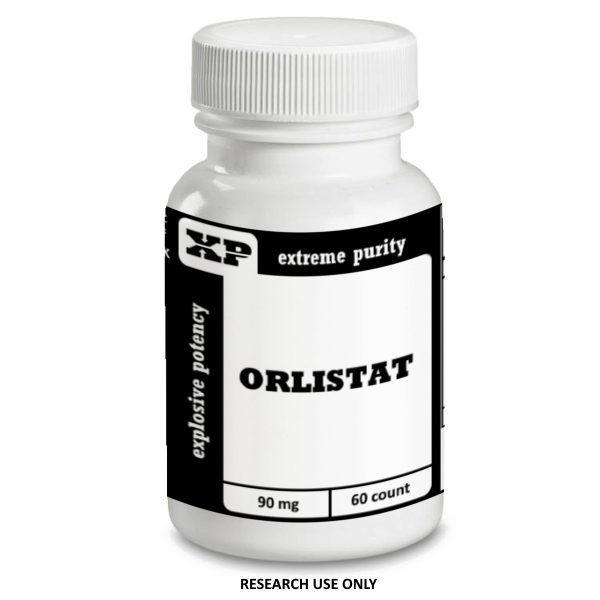
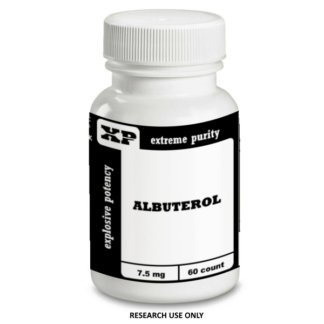
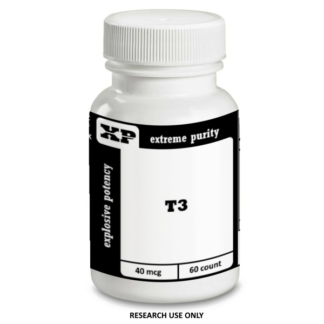
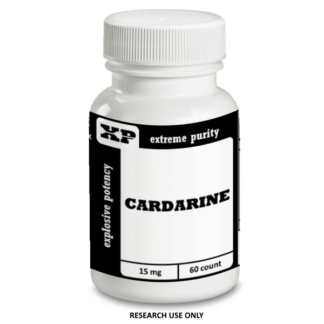








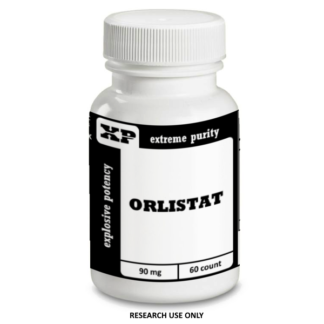
Reviews
There are no reviews yet.